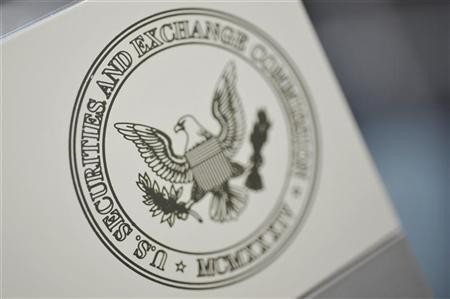US SEC Charges Top Five Accountancy Firms' China Units

The US Securities and Exchange Commission (SEC) has charged the China arms of major accounting companies, KPMG, Deloitte, BDO, PwC and Ernst & Young, with securities violations, related to the US listings of China firms.
In a move that could threaten financial US-Sino relations, the SEC charged the firms with violating the Securities Exchange Act and the Sarbanes-Oxley Act, which requires foreign public accounting firms to provide the SEC upon request with audit work papers involving any company trading on US markets.
In a statement, the SEC said it had exhausted months of negotiations with the firms to obtain and the audit materials are being sought as part of SEC investigations into potential wrongdoing by nine China-based companies whose securities are publicly traded in the US.
The SEC even stated that "the audit firms have refused to cooperate in the investigations," in response to a number of firms citing Chinese secrecy laws for the prevention of files and auditing disclosure to the regulator.
The China affiliates charged are BDO China Dahua, Deloitte Touche Tohmatsu Certified Public Accountants, Ernst & Young Hua Ming, KPMG Huazhen, and PricewaterhouseCoopers Zhong Tian.
"Only with access to work papers of foreign public accounting firms can the SEC test the quality of the underlying audits and protect investors from the dangers of accounting fraud. Firms that conduct audits knowing they cannot comply with laws requiring access to these work papers face serious sanctions," says Robert Khuzami, Director of the SEC's Division of Enforcement.
The US regulator added that an administrative law judge will schedule a hearing and determine the appropriate remedial sanction against the firms.
"The US and Chinese regulators have and continue to be in discussions aiming to build mutual understanding and cooperation on information sharing," a KPMG spokesperson told IBTimes UK. "We remain hopeful that these ongoing discussions will result in a positive diplomatic resolution."
"The SEC's Order Instituting Proceedings against the China member firms of five of the largest networks confirms that the issue of document production by Chinese accounting firms to foreign regulators is a matter that needs to be resolved on a profession-wide basis. While it is unfortunate that the two countries have not yet been able to find common ground on these issues, we remain hopeful that a diplomatic agreement can be reached, and we stand ready to assist that effort in any way we can," said a Deloitte Shanghai representative.
PwC in China told IBTimes UK that "[this] action by the US Securities and Exchange Commission is the result of conflicting laws between the US and China. The fact that the action is being taken collectively against all of the four largest audit firms and one other firm demonstrates that this is a profession-wide issue, not unique to one firm. For its part, PwC China has cooperated with the SEC at every opportunity. However, PwC China will, and must, comply with its legal obligations under China law. This action involves an issue that needs to be resolved between the US and China regulators as it impacts all audit firms in China serving clients who are registered with the SEC. PwC China hopes for continuing dialogue between those two parties to resolve the matter."
A representative at Ernst & Young Hua Ming said "it supports close working relationships between regulators to enable them to cooperate and share information with one another. We hope that an agreement can be reached between U.S. and Chinese regulators that will enable our compliance with all applicable laws and regulations."
the appropriate representatives at BDO were not immediately available for comment at the time of publishing this story.
Threat to US Listings for Chinese Companies
The domestic Chinese stock market has been viewed as largely risky and its bond market is seen as underdeveloped compared to the West.
Abroad, Chinese mainland companied listed the US have been marred by stock scandals over the last few years, which has rocked investor confidence and have led to regulatory probes and audit reviews.
In tandem with the SEC charges, Canada's securities regulator the Ontario Securities Commission said it believed E&Y had breached the Ontario Securities Act in its audits of Sino-Forest Corp.
In July, a company that has been synonymous with China stock scandals, Sino-Forest Corp, said it terminated a proposed asset sale, in favour of a plan that will result in the company's creditors acquiring all of its forestry assets.
Last year, the company's shares tanked after a short-seller accused it of exaggerating the size of its forestry assets and the forestry group's stock has since been de-listed by the Toronto Stock Exchange.
The Ontario Securities Commission recently charged the company and some of its former executives with fraud.
Elsewhere, in the case of Chinese computer company Longtop Financial Technologies, Deloitte Shanghai fought with the request from the SEC to hand over its audit work papers by also citing Chinese secrecy laws.
However, in July, the SEC asked a US federal court to postpone that case for six months while it tried to work out an arrangement with Chinese regulators to get audit documents, which is a hurdle many regulators face.
The US Public Company Accounting Oversight Board (PCAOB), which regulates auditors of U.S.-listed companies, has also been negotiating with Chinese authorities to be allowed to inspect audit firms in China and look at their work papers.
PCAOB Chairman Jim Doty has said that some resolution to that stalemate needs to come this year.
"US investors should be able to rely on the quality of audited financial statements. Our Working Group's actions demonstrate how the SEC is proactively identifying emerging risks to protect U.S. investors from accounting fraud," says Kara Brockmeyer, co-head of the SEC's Cross Border Working Group.
© Copyright IBTimes 2025. All rights reserved.






















